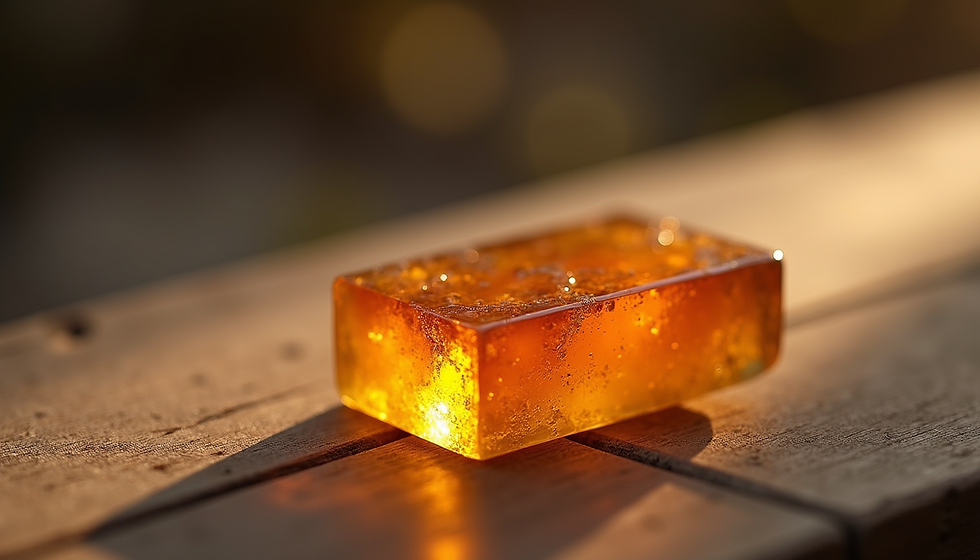Healing Properties of Lavender
- maktraveller
- Nov 7, 2025
- 3 min read
Lavender is more than just a fragrant flower. For centuries, people have turned to lavender for its calming scent and healing properties. Today, science supports many of these traditional uses, showing that lavender offers a range of benefits for the mind and body. Whether you want to reduce stress, improve sleep, or soothe skin irritations, lavender can be a natural and effective option.

What Makes Lavender Special
Lavender belongs to the mint family and grows in many parts of the world. Its purple flowers and sweet aroma make it popular in perfumes, cosmetics, and essential oils. The key to lavender’s healing power lies in its chemical compounds, such as linalool and linalyl acetate. These substances have calming, anti-inflammatory, and antimicrobial effects.
Lavender for Stress and Anxiety Relief
One of the most well-known uses of lavender is to ease stress and anxiety. Research shows that inhaling lavender essential oil can lower heart rate and blood pressure, helping the body relax. Inhaling lavender or using it in a diffuser creates a soothing environment that supports mental calmness.
Aromatherapy: Adding a few drops of lavender oil to a diffuser or bath can reduce feelings of anxiety.
Massage: Mixing lavender oil with a carrier oil and using it for massage helps relax tense muscles and calm the mind.
Sleep aid: Lavender’s calming scent improves sleep quality by reducing restlessness and promoting deeper sleep cycles.
How Lavender Supports Better Sleep
Many people struggle with falling asleep or staying asleep. Lavender offers a gentle, natural way to improve sleep without the side effects of medication. Studies have found that people who use lavender oil before bed fall asleep faster and experience better sleep quality.
Try these simple methods to use lavender for sleep:
Place a sachet of dried lavender under your pillow.
Use a lavender-scented pillow spray.
Diffuse lavender oil in your bedroom 30 minutes before bedtime.
Lavender’s Role in Skin Care
Lavender’s anti-inflammatory and antimicrobial properties make it useful for various skin conditions. It can soothe minor burns, insect bites, and acne. Applying diluted lavender oil to the skin helps reduce redness and irritation.
Acne treatment: Lavender oil fights bacteria that cause acne and reduces inflammation.
Wound healing: Lavender promotes faster healing of cuts and scrapes by increasing blood flow to the area.
Skin hydration: Lavender-infused creams and lotions can hydrate dry skin and improve texture.
Always dilute lavender oil with a carrier oil before applying it to the skin to avoid irritation.
Using Lavender to Relieve Pain
Lavender oil has mild pain-relieving effects. It can help ease headaches, muscle soreness, and joint pain. Applying lavender oil topically or inhaling it may reduce pain intensity and improve comfort.
For headaches, gently massage diluted lavender oil on the temples and back of the neck.
For muscle pain, add lavender oil to a warm bath or use it in massage oil.
Some studies suggest lavender may help reduce pain after surgery or childbirth, but more research is needed.
How to Use Lavender Safely
Lavender is generally safe for most people when used properly. Here are some tips to keep in mind:
Always dilute essential oils before applying to the skin.
Do a patch test to check for allergic reactions.
Avoid using lavender oil near the eyes or on broken skin.
Consult a healthcare provider before using lavender during pregnancy or if you have hormone-sensitive conditions.
Lavender in Everyday Life
Incorporating lavender into daily routines can boost well-being in simple ways:
Add dried lavender to homemade bath salts for a relaxing soak.
Brew lavender tea to calm the digestive system and reduce stress.
Use lavender sachets in closets or drawers to keep clothes smelling fresh.
Combine lavender with other herbs like chamomile for a calming herbal blend.
Scientific Evidence Behind Lavender’s Benefits
Several studies support lavender’s healing effects:
A 2017 review found that lavender aromatherapy reduced anxiety in patients before surgery.
Research published in the Journal of Alternative and Complementary Medicine showed lavender oil improved sleep quality in people with mild insomnia.
A study in Phytomedicine reported that lavender oil helped reduce pain and inflammation in arthritis patients.
While more research is needed to confirm all benefits, current evidence suggests lavender is a useful natural remedy.
Final Thoughts on Lavender’s Healing Power
Lavender offers a range of benefits that support mental and physical health. Its calming scent helps reduce stress and improve sleep. Its anti-inflammatory and antimicrobial properties soothe skin and ease pain. Using lavender in daily life is a simple way to promote relaxation and healing.
Try adding lavender to your self-care routine and notice how this fragrant flower can bring calm and comfort. Whether through essential oils, teas, or skincare products, lavender remains a trusted natural ally for wellness.
This content is for informational purposes only and does not replace professional medical advice. Consult a healthcare provider before starting any new treatment.



Comments